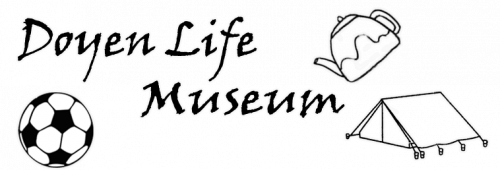Playing to the score is the first requisite of a thinking match player.The two crucial points in any game are the third and fourth. If the first twopoints are divided for 15-all, the third means an advantage gained If woby you, you should strive to consolidate it by taking the next for 40-15 andtwo chances for game, while if lost, you must draw even at 30-all to havean even chance for game.In order to do this, be sure to always put the ball in play safely, and donot take unnecessary chances, at 15-all or 30-15. Always make the serverwork to hold his delivery. It womies him to serve long games, andcreases the nervous strain of the match.et In the game score the sixth, seventh, and eighth games are the crux ofery close set. These games may mean 4-2 or 3-al, 5-2 of 4-3, the mocital advantage in the match or 5-3 or 4-all a matter of extreme momerto a tiring player. If ahead, you should strive to hold and increase your leadIf behind, your one hope of victory rests in cutting down the advantage ofthe other man BEFORE one slip means defeat. 5-2 is usually too latestart a rally. but 4-3 is a real chanceNever throw away a set because a player has a lead of 4-l, or even 5-1unless you already have two sets in a 5-set match, and do not wish to nsktiring by trying to pull it out, and possibly failing at 6-4. The greatadvantage Of 3-1 on your own service is a stumblng-block for manyplayers, for they unconsciously let up at the fifth game, thinking they havea 2-game lead. However, by dropping that game, the score will go 2-3 and3-all if your opponent holds service, instead of 1-4 and 4-2, thus retaininga distinct advantage and discouraging your opponent in that setThe first set is vital in a 2 out of 3 match Play for all of it The secondand third sets are the tuming-point in a best of 5-set match. Take the firstwhere possible, but play to the lmit for the next two. Never allow a 3 outof 5-set match to go to, the fifth set if it is possible to win in less; butnever give up a match until the last point is played, even if you are twosets and five games down Some occurrence may turn the tide in yourFavourA notable example of such a match occurred at Newport, in 1916.Wallace F. Johnson and Joseph J. Armstrong were playing Ichija Kumagaethe famous Japanese star, and Harold A. Throckmorton, then juniorChampion of America, in the second round of the doubles

It was Kumagae's first year in America, and he did not understandAmericans and their customs well. Kumagae and Throckmorton wereleading one set at 6-0, 5-1, and 40-15, Kumagae serving. Throckmortonturned and spoke to him, and the Japanese star did not understand what hesaid. He served without knowing, and Armstrong passed him down thecentre. Johnson duplicated the feat in the next court, and Kumagae grewflustered. Throckmorton, not understanding, tried to steady him withoutresult, as Kumagae double-faulted to Armstrong, and he,worried. Both men began missing, and Johnson and Armstrongthe set and won the match in a runaway in the last stanza. Johnson andArmstrong met W. M. Johnston and C J. Griffin, the National Champions,in the final and defeated them in five sets, inflicting the only reverse thetitle-holders suffered during their two-year reign as championsAnother much more regrettable incident occurred in the famous matchbetween R L. Murray of Califomia and George M. Church of New Yorkin the fourth round of the American National Championship in 1916George Church, then at the crest of his wonderful game, had won the firsttwo sets and was leading Murray in the third, when the famous Californianstarted a sensational rally. Murray, with his terrific speed, merry smile, andgenial personality, has always been a popular figure with the public, andwhen he began his seemingly hopeless fight, the crowd cheered himwildly. He broke through Church's service and drew even amid a terrificdin. Church, always a very high-strung, nervous player, showed that thecrowd's partiality was getting on his nerves. The gallery noticed it, andbecame more partisan than ever. The spirit of mob rule took hold, and foronce they lost all sense of sportsmanship. They clapped errors as theyrained from Church's racquet; the great game collapsed under the terrifictrain,and Churchs last chance was gone. Murray won largely as hewanted, in the last two sets. No one regretted the incident more thanMurray himself, for no finer sportsman steps upon the court than thisplayer, yet there was nothing that could be done. It was a case of externalconditions influencing the psychology of one man so greatly that it costhim a victory that was his in justice
The primary object n match tennis is to break up the other mans gameThe first lesson to learn is to hold your nerve under all circumstances. Ifyou can break a player's nerve by pounding at a weakness, do it. Iremember winning a 5-set doubles match many years ago, against a teamfar over the class of my partner and myself, by lobbing continually to oneman until he cracked under the strain and threw the match away. Hebecame so afraid of a lob that he would not approach the net, and hiswhole game broke up on account of his lack of confidence. Ourpsychology was good, for we had the confidence to continue our plan ofattack even while losing two of the first three sets. His was bad, for he losthis nerve and let us know it.shots at cruciala match. If your opponent makes a marvellous recovery and wins by it,give him full credit for it, and then forget it, for by worry ing over it younot only lose that point but several others as, well, while your mind is stillwandering. Never lose your temper over your opponent's good shots. It isbad enough to lose it at your own bad ones. Remember that usually theloser of a match plays just as well as the winner allows him. Never loseyour temper at a bad decision. It never pay s, and has cost many a match.remember a famous match in Philadelphia, between Wallace F.ohnson, the fifth ranking player in America, and Stanley W. Pearson, alocal star, in the Interclub tennis league of that city. Johnson, who haenjoyed a commanding lead of a set and 4-1, had slumped, and Pearsonhad pulled even at a set-all, and was leading at 5-1 and 40-15, point setmatch He pulled Johnson far out to the forehand and came to the net.ohnson chopped viciously down the side-line, but Pearson volleyed toJohnson's deep backhand comer. Johnson had started RUNNING in thatdirection as he hit his return, and arrived almost as Pearson's volleybounced. Unfortunately Johnson slipped and went down on both knees,but held his racquet He reached the ball and chopped it down the side-linefor an eamed point before Pearson realized he had even offered at it.Pearson was so surprised and angered that he double-faulted for deuce,and Johnson won the game. Johnson pulled even at 5-all, before Pearsonrecovered his equilbrium, and finally won the set at 17-15. TrulyPearson's lapse at Johnson's marvellous get was a costly mental break.
